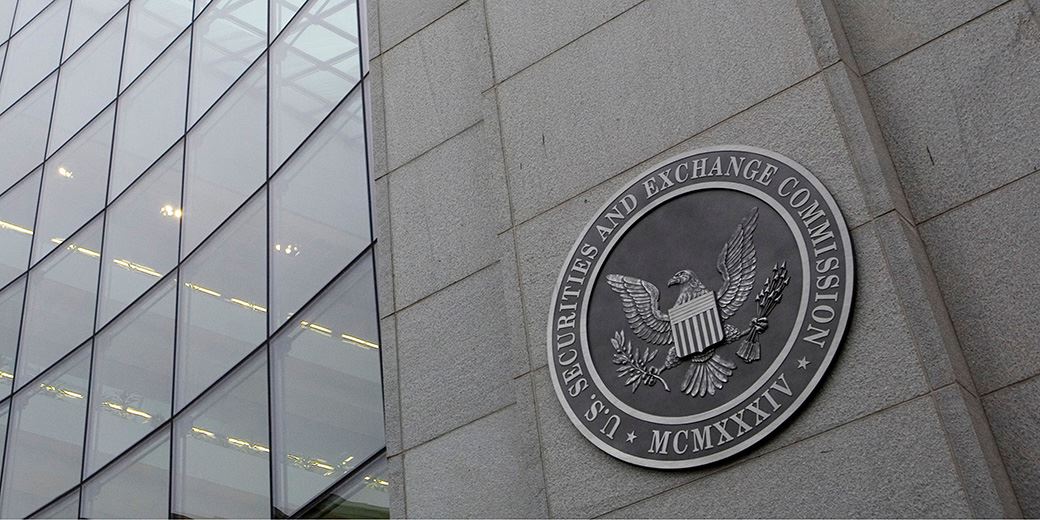SEC’s First Crypto Roundtable Signals Shift in Digital Asset Regulation
23.03.2025 10:00 1 min. read Alexander Stefanov
The U.S. Securities and Exchange Commission (SEC) has taken a notable step into the cryptocurrency sector by hosting its first-ever roundtable focused on digital asset regulations.
This event, launched on March 21, 2025, is part of a broader initiative dubbed the “Spring Sprint Toward Crypto Clarity,” aimed at refining the agency’s approach to overseeing crypto markets while balancing innovation and investor protection.
A key focus of the discussion revolved around determining which digital assets should be classified as securities under existing laws. Held at the SEC’s headquarters in Washington, D.C., the roundtable featured industry experts analyzing the legal status of cryptocurrencies. Many view this as a pivotal moment that could shape future regulatory frameworks in the U.S.
The SEC streamed the session live on its official website, allowing a wider audience, including investors and industry participants, to follow the discussions. While in-person attendance was limited for security reasons, the commission plans to release a recording of the four-hour event to ensure accessibility.
The outcome of these discussions could significantly influence investor sentiment and the broader digital asset market. The SEC appears to be seeking diverse viewpoints from the crypto sector to create clearer, more practical regulatory guidelines. The final framework could impact how different digital assets are classified and which regulatory agencies oversee them, potentially shaping the future of cryptocurrency in the U.S.
-
1
Europe Takes the Lead in Crypto as U.S. Stalls on Regulation
22.06.2025 22:00 2 min. read -
2
Japan Plans Major Crypto Reform with New Tax Rules and ETF Access
24.06.2025 20:00 2 min. read -
3
Gemini Launches Tokenized MicroStrategy Stock for EU Users
28.06.2025 9:30 2 min. read -
4
U.S. Crypto Investors Hit by IRS Letter Surge as Tax Crackdown Looms
29.06.2025 11:00 3 min. read -
5
Here is When the U.S. House Will Vote on Key Crypto Bills
04.07.2025 12:00 2 min. read
EU Grants MiCA Licenses to 53 Crypto Firms: Here Is the Full List
The European Union has granted a total of 53 licenses under its MiCA (Markets in Crypto-Assets) regulatory framework, marking a major step toward harmonized crypto oversight across the region.
Here is When the U.S. House Will Vote on Key Crypto Bills
Following the passage of President Donald Trump’s sweeping tax and spending bill, House Republicans are now setting the stage for a major push on cryptocurrency legislation.
SEC Chairman With Important Comments on Regulation, Crypto, and Trading
U.S. Securities and Exchange Commission (SEC) Chairman Paul Atkins has emphasized the agency’s continued focus on investor protection, addressing insider trading, market manipulation, and the evolving landscape of cryptocurrency regulation.
Arizona Governor Vetoes Bill, Related to State Crypto Reserve Fund: Here Is Why
Arizona Governor Katie Hobbs has officially vetoed House Bill 2324, a legislative proposal that aimed to create a state-managed reserve fund for holding seized cryptocurrency assets.
-
1
Europe Takes the Lead in Crypto as U.S. Stalls on Regulation
22.06.2025 22:00 2 min. read -
2
Japan Plans Major Crypto Reform with New Tax Rules and ETF Access
24.06.2025 20:00 2 min. read -
3
Gemini Launches Tokenized MicroStrategy Stock for EU Users
28.06.2025 9:30 2 min. read -
4
U.S. Crypto Investors Hit by IRS Letter Surge as Tax Crackdown Looms
29.06.2025 11:00 3 min. read -
5
Here is When the U.S. House Will Vote on Key Crypto Bills
04.07.2025 12:00 2 min. read

